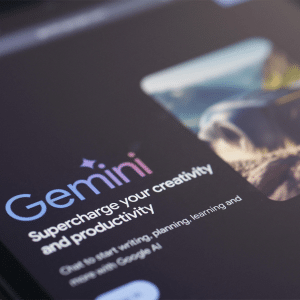Claude for Chrome operates as a sidecar window, a compact interface that stays active alongside a user’s browser. Unlike traditional chatbots confined to standalone apps, this agent maintains awareness of everything happening on-screen, from the websites visited to the actions performed. Users can chat with Claude in real time, asking it to summarize content, answer questions about a webpage, or even execute tasks like clicking buttons or filling out forms. This contextual awareness makes Claude feel less like a distant tool and more like an intuitive partner, capable of understanding the nuances of a user’s online environment.
The extension’s ability to act on behalf of users is its standout feature. For instance, Claude can navigate to specific pages, input data, or perform simple interactions, all with user permission. This functionality aligns with Anthropic’s vision of creating AI that doesn’t just respond but anticipates and streamlines tasks. However, the company is cautious, rolling out this capability to a small group to refine its performance and address potential hiccups before broader release.

Safety First in a Risky Digital Landscape
Integrating AI into browsers raises significant safety concerns, particularly around vulnerabilities like prompt injection attacks, where malicious code embedded in websites could manipulate an AI into harmful actions. Anthropic has taken proactive steps to mitigate these risks. By default, Claude is blocked from accessing high-risk sites, such as those offering financial services, adult content, or pirated material. Users can further customize restrictions, limiting Claude’s access to specific domains through the extension’s settings.
The company has also bolstered its defenses against prompt injection, reducing the success rate of such attacks from 23.6% to 11.2% through enhanced system prompts and advanced classifiers. These classifiers detect suspicious patterns, like hidden malicious form fields in a webpage’s structure, invisible to human users but potentially exploitable by AI. For high-stakes actions—such as publishing content, making purchases, or sharing personal data—Claude requires explicit user consent, ensuring no unintended moves are made.
Anthropic’s focus on safety stems from lessons learned in earlier experiments. In October 2024, the company tested an AI agent capable of controlling a user’s PC, but it proved slow and unreliable. Since then, improvements in agentic AI have made browser-based agents like Claude for Chrome more dependable, though complex tasks still pose challenges. The research preview aims to gather real-world feedback to further strengthen safeguards and performance.
The Browser as AI’s Next Frontier
Browsers are becoming a battleground for AI innovation, with companies like Perplexity and OpenAI also exploring integrated agents. Perplexity’s Comet browser, for example, features an AI that offloads tasks, while OpenAI’s ChatGPT Agent operates in an isolated cloud environment to perform web actions. Anthropic’s approach, embedding Claude directly into Chrome, offers a more seamless experience, leveraging the browser’s ubiquity to make AI accessible without requiring users to switch platforms.
This move reflects a broader industry trend: AI labs are racing to integrate their models into everyday tools, making interactions more intuitive. Browsers, as the gateway to the internet, are a natural fit. By embedding Claude in Chrome, Anthropic is betting that users want AI that feels native to their workflow, not a separate app they need to open. The sidecar design ensures Claude is always a click away, ready to assist without disrupting the browsing experience.
Why Claude for Chrome Matters for Users
For everyday users, Claude for Chrome could simplify tasks that feel tedious or time-consuming. Imagine browsing a complex website and asking Claude to summarize its key points or fill out a repetitive form. For professionals, the agent could streamline research by pulling relevant data from multiple tabs or navigating industry-specific sites with precision. The potential is vast, but it hinges on Anthropic’s ability to balance capability with caution.
The limited rollout to Max plan subscribers suggests Anthropic is prioritizing quality over scale. The waitlist for other interested users indicates strong demand, but the company is clear: safety and reliability come first. By testing with a small group, Anthropic can observe how Claude performs across diverse browsing habits, from casual surfing to intensive research, ensuring the agent adapts to real-world needs.
The Road Ahead for Browser-Based AI
Claude for Chrome is a research preview, not a finished product, and Anthropic is upfront about its experimental nature. The company plans to use feedback from this pilot to enhance Claude’s capabilities and address emerging risks. As browsers evolve into platforms for AI integration, the lessons learned here could shape not only Anthropic’s offerings but also the broader landscape of agentic AI.
The extension’s success will depend on its ability to deliver practical value while maintaining user trust. If Anthropic can refine Claude’s performance and keep safety first, this could mark a significant step toward AI that feels like a natural extension of our digital lives. For now, Claude for Chrome is a promising glimpse into that future, one where AI doesn’t just answer questions but actively helps us navigate the web.









